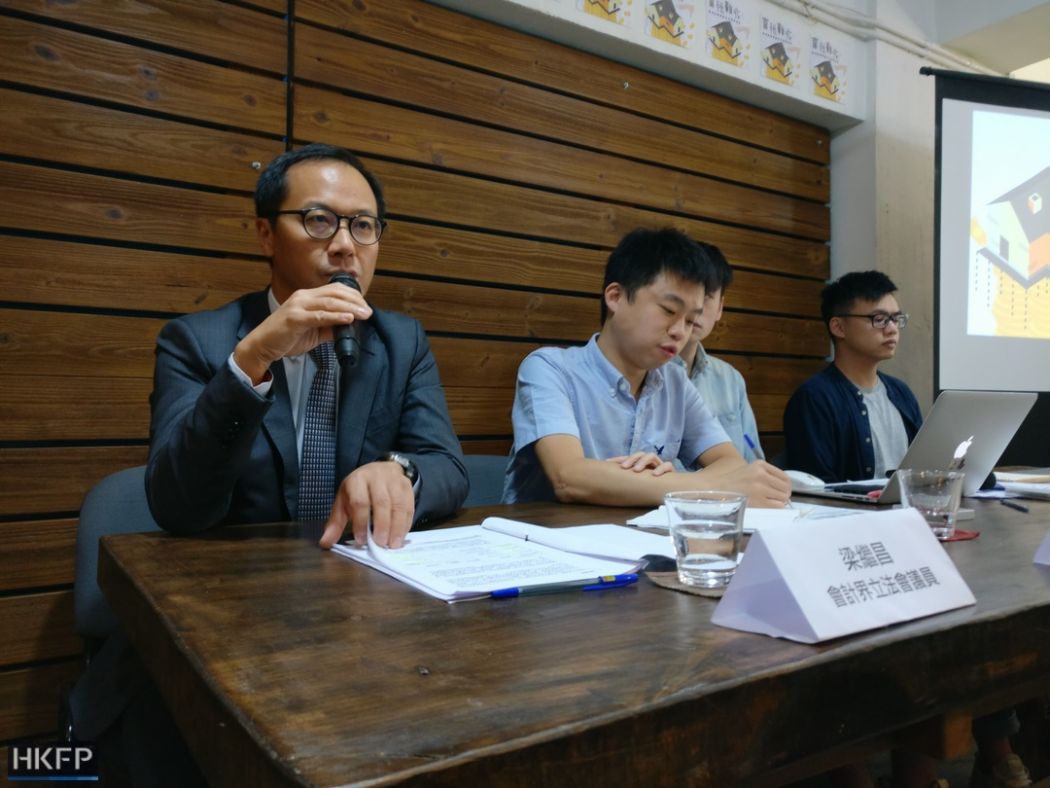Property buyers have been exploiting a tax loophole that has cost the government at least HK$9.4 billion since 2010, according to a study published on Tuesday.
The report by the Liber Research Community found 126 cases where residential property was purchased via “share transfer,” where the normal tax for property transfers – a stamp duty of up to 30 per cent of the purchase price – does not apply. Liber attributed over half of the cases to non-local buyers, adding that it had been a rising trend since 2016.

“Using an HK$10 million flat as an example, a non-local buyer or corporate buyer originally needed to pay HK$3 million in stamp duty, but using share transfer the tax is only HK$20,000,” said Liber member Henry Chan Hin-yan.
Unlike in most property transactions where the legal title passes from one person to another, in share transfers the ownership of the property does not change. The property belongs to a company, and instead the buyer pays for effective control of the company. Because the law does not recognise the transfer as a transfer of property, no stamp duty is levied.
Mainly foreign buyers
The study found that 90 out of the 126 cases involved foreign buyers, including 20 company buyers registered in the British Virgin Islands and 42 immigrant buyers.

Among the buyers involved were multiple high-level executives of mainland property companies, former members of the Chinese People’s Political Consultative Conference, and local celebrities. The study also said CK Hutchison Holdings, one of Hong Kong’s four largest property developers, sold flats using share transfers.
According to the study, the total value of properties sold via share transfer amounted to one fifth of the value of all properties sold during the same time period.
Chan said Liber researchers traced suspicious transfers via news reports, and then cross-checked the relevant details with the Land Registry and the Companies Registry. If there was a complete change in the directorship of a company owning residential property, it could indicate a share transfer.
Liber member Brian Wong Shui-hung added that the study’s methodology meant only a fraction of share transfers were uncovered.
‘One property two taxation systems’
Chan and Wong expressed concerns that the widespread use of share transfers would undercut the government’s housing strategy, especially measures implemented to curb rampant speculation.
In what is colloquially known as a “spicy” policy, the government raised the Double Stamp Duty in 2016, so that non-local buyers would pay double the stamp duty of local buyers. The study found that cases of share transfers rocketed after 2016, signalling that buyers were using it as a workaround.

Liber recommended that the stamp duty system be amended so that taxation is linked to the property’s real owners, as opposed to its owners on paper. It also urged the government to set up a public register on the “significant controllers” of property-owning companies to increase transparency.
“[Share transfer] is a backdoor for tax avoidance,” Chan said. “Our study is the starting point for citizens to know more… but ultimately the responsibility lies with the government.”
